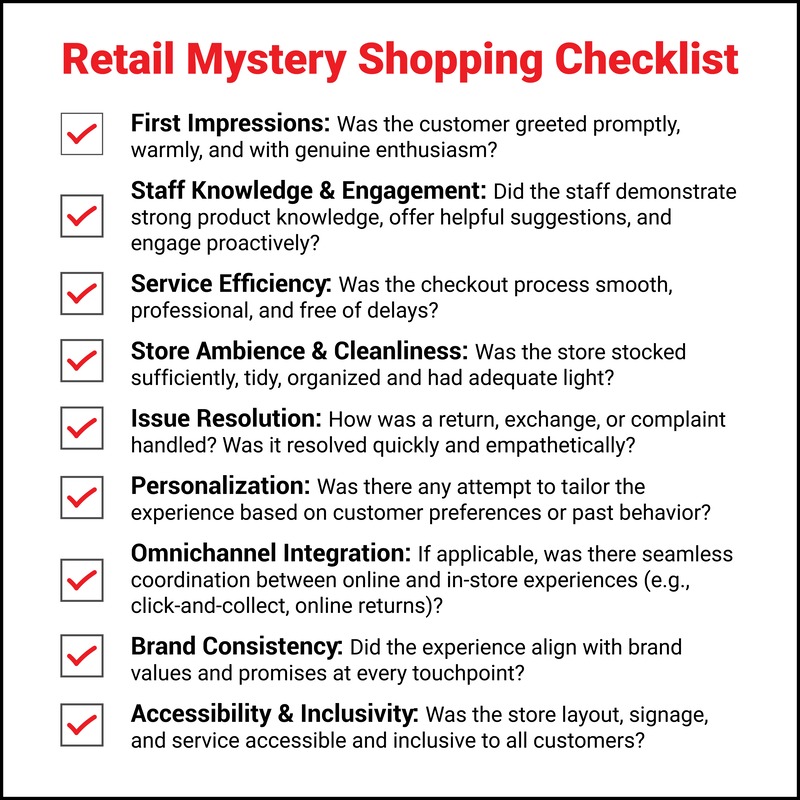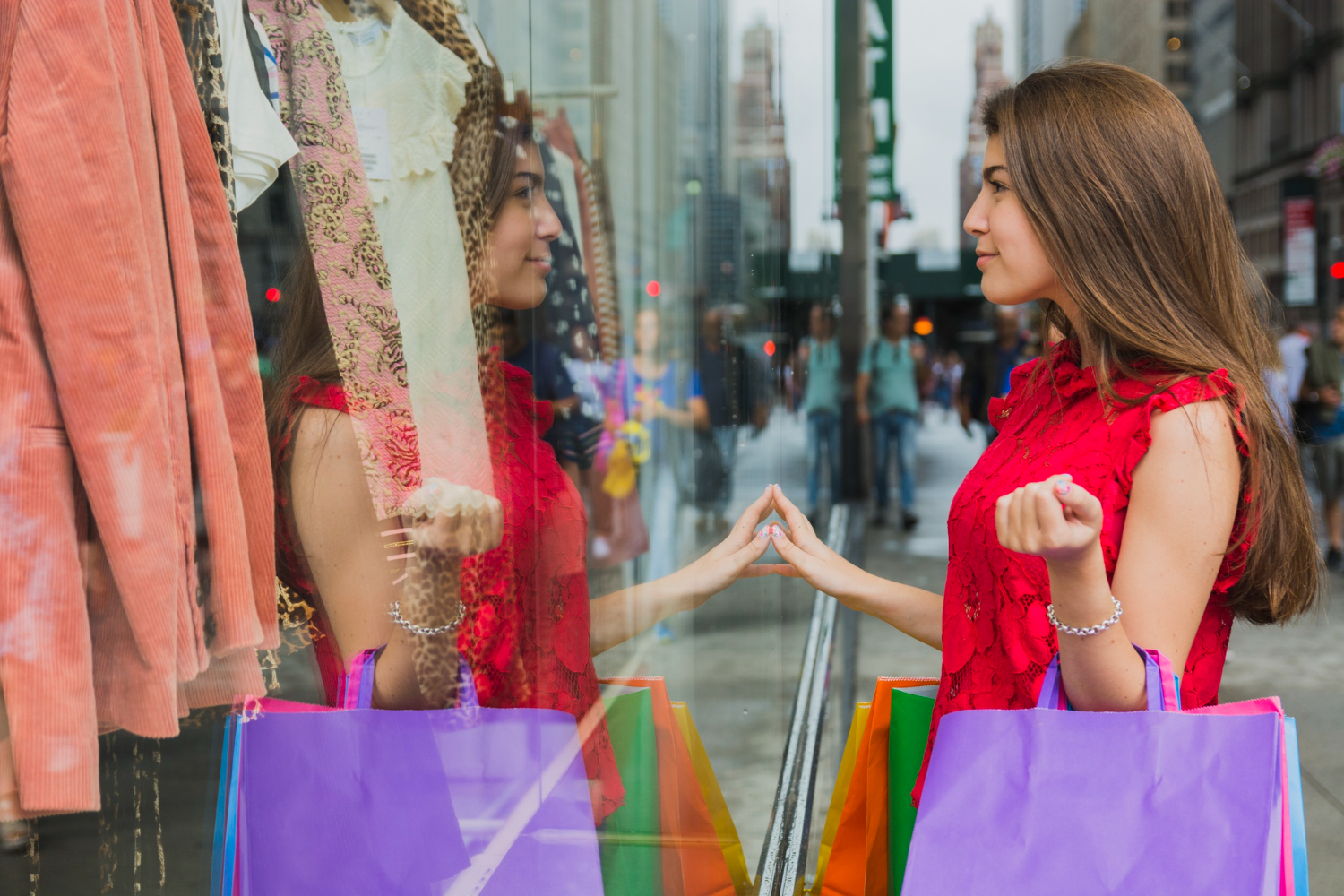Introduction: Why Retailers Can’t Afford to Guess Anymore
According to McKinsey, brands that deliver exceptional customer experiences can achieve revenue growth of 5–10% and reduce operational costs by 15–25%. Yet, most retailers still struggle with understanding what’s happening inside their stores.
So, how can brands ensure consistent experience-led growth? Through Mystery Shopping.
Whether it's a high-end mystery shopping program in a flagship store or a post-purchase questionnaire on an e-commerce platform, leading brands treat mystery shopping as a strategic asset. For businesses focused on long-term differentiation, in-store audits, retail mystery shopping techniques, and dynamic customer feedback tools are no longer optional; they're mission-critical.
Here’s a breakdown of how mystery shopping is reshaping modern retail—from what it looks like on the ground to how leading retailers are using it to fine-tune operations, exceed customer expectations, and outpace competitors.
What is Retail Mystery Shopping?
Retail mystery shopping is a structured approach to evaluating customer experience. Trained evaluators - mystery shoppers - interact with stores just like regular customers. They observe, assess, and report on everything from staff behavior and product knowledge to process compliance and visual merchandising.
The goal? To gain a clear, unbiased view of real-world execution and customer perception.
For both growing and established retailers, these programs are strategic CX levers. When implemented effectively, they function as early-warning systems for brand erosion and as high-impact tools to refine frontline performance, enhance consistency, and reinforce customer loyalty at scale.
What Do Retail Mystery Shoppers Do?
Retail mystery shoppers step into a store with a detailed brief. They may assess how promptly a staff member greets them, whether they recommend a particular promotion, or how smoothly the checkout process goes. Post-visit, they complete a mystery shopping questionnaire, noting specific moments and outcomes.
A mystery shopping report might observe things like: “Staff greeted within 10 seconds and explained the current offer clearly.” These observations are compiled into structured reports that provide decision-makers with reliable, qualitative insights. The best retail mystery shopping companies ensure this process is consistent, scalable, and insightful across hundreds of locations.
Why Retailers Are Investing Heavily in Mystery Shopping Programs
Mystery shopping is no longer a “nice to have” - it’s a proven business lever with measurable ROI. Retailers are investing in mystery shopping not only to evaluate customer service but to unlock insights that directly impact the bottom line.
Here are the key benefits of mystery shopping in retail.
- Customer Retention - Increasing customer retention by just 5% can boost profits up to 95% (Bain & Company). Mystery shopping reveals shortcomings in service and training, which, when improved, can enhance customer retention and long-term value.
- Operational Efficiency - Mystery shopping evaluations deliver practical insights that help optimize business operations. A McKinsey study notes that operational improvements can lift profitability by up to 30%. Whether it's reducing wait times, eliminating process friction, or improving inventory presentation - small shifts add up fast.
- Brand Protection - Inconsistent experiences weaken brand equity. Mystery shopping enforces compliance with brand standards across locations, ensuring every interaction reinforces trust, consistency, and quality - especially important for multi-location or franchise models.
- Strategic Testing & Benchmarking - Retailers use mystery shopping to test new store formats, product launches, promotions, and SOPs before scaling. It also serves as a benchmarking tool, offering competitive insights through comparative reviews.
U.S. companies lose an estimated $75 billion annually due to negative customer experiences. Mystery shopping helps mitigate this risk by proactively identifying service gaps that lead to churn. Moreover, there’s often a significant disconnect between internal perceptions and customer reality. Mystery shopping closes this gap by delivering objective, ground-level insights that drive informed action and continuous improvement.
In short, mystery shopping gives retailers the data they need to optimize performance, reduce inconsistencies, and align execution with customer expectations - all while delivering measurable ROI.
High-End Retail’s Reliance on Precision Feedback
In high-end retail mystery shopping, the emphasis shifts from speed to sophistication. Evaluators examine subtle elements such as ambiance, tone, personalization, and emotional impact, all of which are essential for maintaining consistency in luxury branding. Unlike mainstream audits, it’s less about efficiency and more about delivering a premium, differentiated experience.
Using advanced mystery shopping and retail auditing techniques, top-tier brands ensure every associate interaction reinforces their brand DNA. In a segment where expectations are elevated and missteps carry reputational risk, this precision is essential to sustaining loyalty and market position.
In-Store vs. Online Retail Mystery Shopping
Mystery shopping for online retailers is just as important as in-store evaluations because digital is often the first point of contact for many customers.
In-store mystery shopping focuses on physical factors like cleanliness, customer greetings, and merchandising execution. Online audits assess website navigation, mobile UX, ease of checkout, and delivery experience.
Retailers operating in hybrid formats require programs that merge both, ensuring consistency across physical and digital channels. Mystery shopping for retail must be tailored to both environments to identify friction points and drive cohesive customer journeys.
Your Retail Mystery Shopping Checklist
An effective retail mystery shopping checklist should go beyond the basics, capturing both operational efficiency and emotional impact. Here are key areas to include.

These questions form the foundation of a robust mystery shopping questionnaire. However, the most effective programs continuously evolve adapting to shifting customer expectations, emerging retail formats, and changing market dynamics. A static checklist becomes irrelevant; a dynamic one becomes a strategic advantage.
How Sonata CX Powers Retail Excellence Through Mystery Shopping
For over 30 years, Sonata CX has delivered tailored, insights-driven mystery shopping programs that serve retailers of all sizes—from legacy brands to high-growth disruptors. Here’s how:
- Custom-designed frameworks aligned to brand objectives
- Extensive evaluator networks across regions and industries
- Seamless mystery shopping for online retailers and brick-and-mortar locations
- Integrated reporting through CX Analytics Dashboards with real-time metrics
- Trackable KPIs that connect in-store behavior with customer satisfaction metrics
Whether you’re looking to improve operational compliance, reduce customer complaints, or lift your CSAT score, Sonata CX’s retail mystery shopping solution is engineered for outcomes. As one of the best retail mystery shopping companies, Sonata combines human insights with data-backed reporting to drive meaningful improvements.
Get the Competitive Advantage You Didn’t Know You Needed
Mystery shopping is a strategic lever for optimizing execution and delivering consistent, high-impact retail experiences that drive business outcomes. Retailers who embed this practice into their customer experience strategy consistently outperform those who don’t.
Looking to bring structured CX intelligence to your stores? Explore how Sonata CX can help build a smarter, data-first retail mystery shopping program that scales with your ambition.

